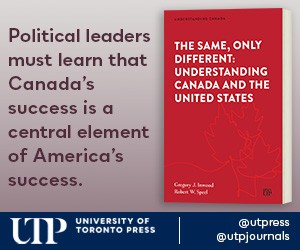Stéphane Dion was so disorganized he literally could not run his own household. An Ottawa grocer suspended deliveries to Stornoway, official residence of the Leader of the Opposition, after Dion forgot to pay his account. Professor Brooke Jeffrey of Concordia University writes a certain unnamed hotel chain refused to take Liberal Party bookings for non-payment.
Jeffrey’s Road To Redemption documents the Liberals’ fall and rise from 2006 when the Party stumbled to third-party status in the Commons. It dramatized “a steady decline in voter support across the country over several decades,” writes Jeffrey.
Road To Redemption is not a dispassionate account. Professor Jeffrey is a longtime Liberal insider, former director of the caucus research bureau, and feeds the mythology of Liberal insiders as a kind of master race of wily political operatives. Federal Liberals are “often described as the most successful political party in the Western world,” claims Road To Redemption.
Incorrect. Mexico’s PRI party ruled for 71 consecutive years. Japan’s Liberal Democrats elected sixteen prime ministers in a row from 1948 to 1993. Ireland’s Fianna Fáil monopolized politics of the republic for three-quarters of a century. The U.S. Democratic Party’s Cook County Machine has run Chicagoland since 1932, marking 89 years of corruption and malfeasance.
Yet Professor Jeffrey knows where all the bodies are buried, and is an enthusiastic gravedigger. Take the hapless Dion, an incompetent manager who could barely string together a sentence in English. At one point the Party hired a speech coach who complained Dion had “a problem with intonation and pitch” with “his sentences often rising at the end conveying the impression of uncertainty.”
“Stéphane Dion was not a party man,” writes Jeffrey. He lacked “emotion intelligence” in either official language: “Dion had few personal relationships or meaningful interactions with individual caucus members. One critic pointed out there was never a line-up to see the leader outside of his Centre Block office in 409-S. ‘This was unheard of. Usually there would be a long line of supplicants waiting to get a leader’s ear.’”
Then there was Michael Ignatieff, “the next Messiah.” In the 2011 campaign Ignatieff boasted to advisors he was “a champion debater at university and had spent his life as a TV journalist,” then went to pieces in a televised debate when New Democrat Jack Layton took a shot: “If you want the job you have to show up for the work.”
“As Liberal MP Mark Holland later recalled, when he was canvassing door to door during the election more than one constituent told him, ‘If he can’t stand up for himself, how can he stand up for me?’” writes Jeffrey.
Road To Redemption is uneven in documenting more recent events. The author claims Canadians have a “love affair” and “ongoing fascination with Trudeau” – actually the Party was reduced to 33 percent of the popular vote – and dispenses with the SNC-Lavalin scandal without serious examination of raw corporate influence in the Prime Minister’s Office.
Analyzing the 2019 campaign, Professor Jeffrey dismisses the jarring blackface incident in two cursory paragraphs on page 262, yet claims: “In August 2019 the Liberals received an invaluable pre-election boost when two dozen academics released a book titled Assessing Justin Trudeau’s Liberal Government” (!)
For all its partisanship and revisionism Road To Redemption is a rollicking account of a crowded era.
By Holly Doan
Road to Redemption: The Liberal Party of Canada 2006-2019, by Brooke Jeffrey; University of Toronto Press; 336 pages; ISBN 9781-4875-00566; $25.97









